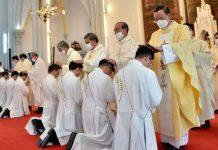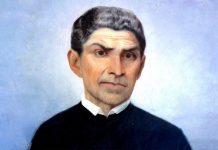The translation of the book “The Bible for Children” was made into the indigenous language of the Maui people and more than a thousand copies have been delivered to local communities in the Amazon
Newsroom (January 17, 2023, 5:35 PM, Gaudium Press) Thanks to an initiative of the Pontifical Foundation Aid to the Church in Need, members of the indigenous tribe of the Sateré-Maués can now read the Bible in their own language.
In mid-December, more than a thousand copies of the “Bible for children – God speaks to his children” were distributed to about 30 communities of the Sateré-Maué people.
The Sateré-Maué people live in the Amazon region of Andirá-Marau. The Italian missionary of the Institute of Foreign Missions, Father Henrique Uggé, says that when he arrived in the region in 1979, the Sateré-Maué people were threatened with extinction and numbered only 1,200 people. Today, according to data from Funai (2014), the population already numbers more than 13,000 members.
The Children’s Bible
The Bible for Children is a compilation of 72 texts from the Old and New Testaments that allows children to become familiar with the Holy Scriptures.
The first edition of the Children’s Bible was first published in 1979. About 50 million copies have been printed in more than 190 languages worldwide since then.
In Brazil, the book has a circulation of 10 million copies. Besides the Portuguese language version, the Children’s Bible has been published in regional languages such as Guarani, Toucan, Ticuna and Macuxi.
The Malay translation
The translation into Maize had the help of seven local catechists. One of them, Dercival Santos Batista, explained that “thanks to this book, our children and young people will walk on the right path. It is also very important for our own understanding of the Word of God.”
For Honorato Lopes Trindade, one of the translators, the book highlights the importance of protecting the very language and culture of the Sateré-maué people.
“We are losing our language and we must fight to keep it. Many of the words in this Bible have fallen into disuse, so readers will have to ask (the meaning) to understand them,” the catechist explained.
Father Uggé said that the translation and edition of other liturgical and spiritual books are in preparation. (FM)
With information from Aid to the Church in Need.
Compiled by Zephania Gangl
































